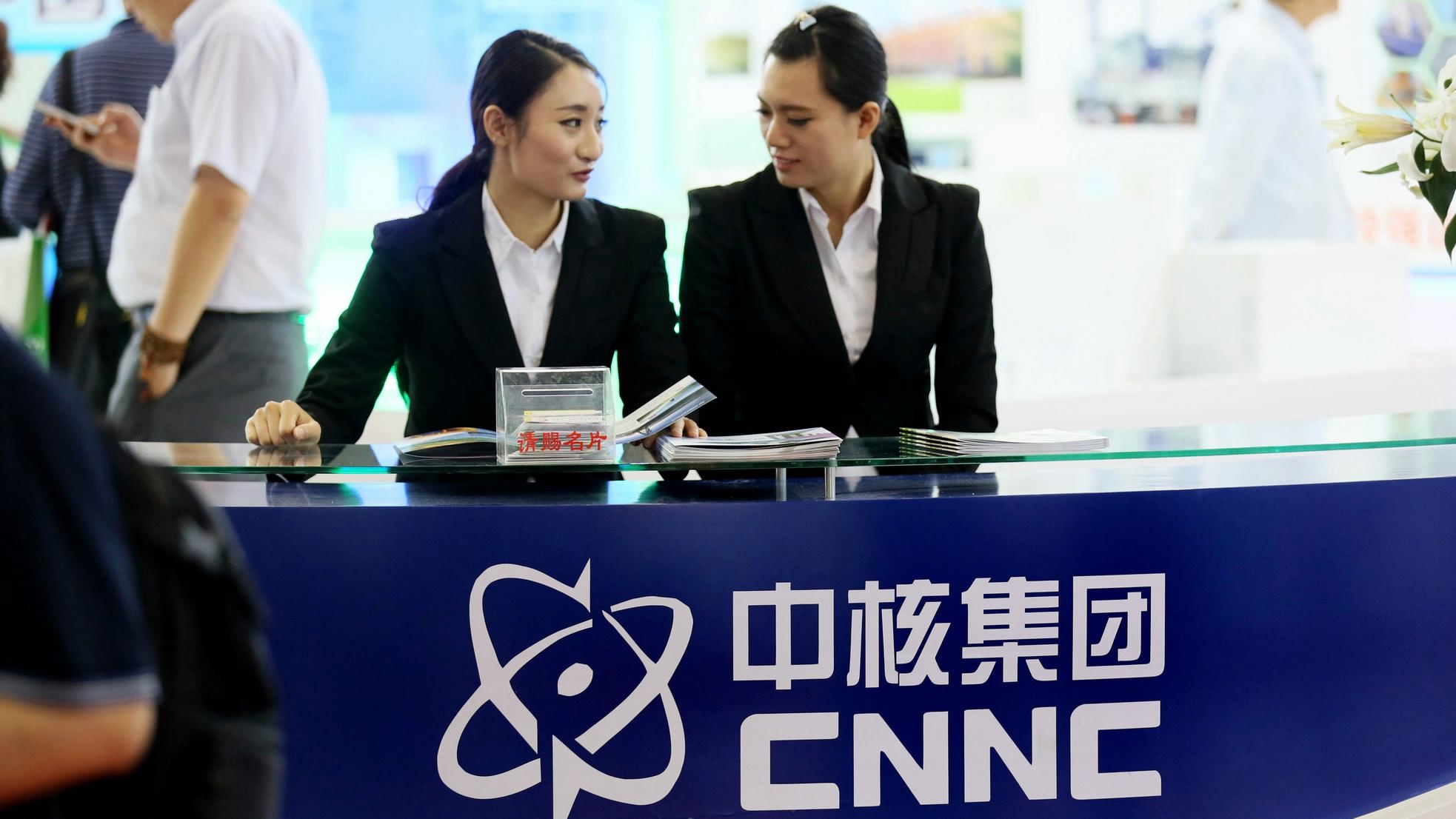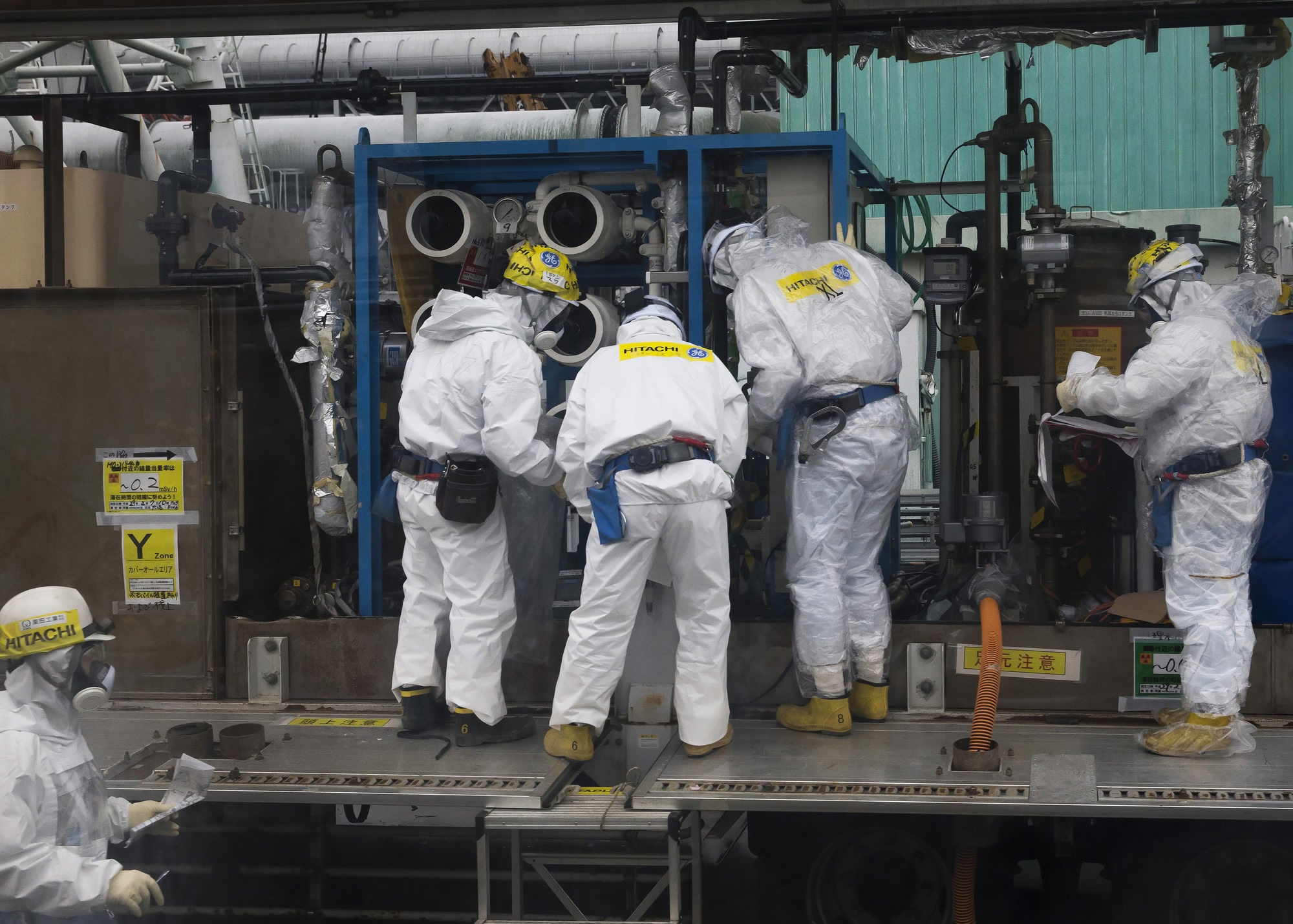China National Nuclear Corporation stresses on environment and responds to merger rumor
2017-03-08 22:32:57 GMT+8

Editor
He Yan
By CGTN’s Grace Shao
Nuclear energy has been receiving a lot of critique especially since the Fukushima I Nuclear Power Plan incident but experts reassured everyone that the unfortunate catastrophe was an anomaly, mainly caused by an earthquake and a tsunami that cut off the electricity from the exterior, which led to active reactors being automatically shut down, and emergency generators being destroyed.
China National Nuclear Corporation's (CNNC) Chairman Wang Shoujun outlined the priorities for China's nuclear energy sector and reiterated that safety comes first during a press conference on sideline of Two Sessions on Wednesday.
Wang emphasized the importance to follow Premier Li Keqiang’s remarks in the process of building a stronger, more advanced solid foundation for nuclear power in China, and to maintain a healthy relationship with the military to further research, technology development and national security.
And he strongly stressed the importance of maintaining a safe environment.
Wang said they must adhere to the strictest and most comprehensive safety measurement when developing more nuclear plants. He said that it is inevitable that nuclear energy will have to be commercialized eventually, though it would not be for the average every-day consumer, it will become more mainstream. And under the New Normal it is vital for CNNC to seize the opportunity and adjust to the supply-side reform and provide the necessary facilities in order to build a strong foundation prepared for the future transition.
As China's nuclear energy advances, it now has the competitiveness to compete in the world. This market is extremely competitive and to get ahead CNNC is utilizing our resources the most efficient way possible. By out-housing some necessary steps CNNC is optimizing efficiency and becoming an international player.
Background highlights (Source World Nuclear Association March 2017)
·Mainland China has 36 nuclear power reactors in operation, 21 under construction, and more about to start construction.
·Additional reactors are planned, including some of the world's most advanced, to give a doubling of nuclear capacity to at least 58 GWe by 2020-21, then up to 150 GWe by 2030, and much more by 2050.
·The impetus for increasing nuclear power share in China is increasingly due to air pollution from coal-fired plants.
·China’s policy is to have a closed nuclear fuel cycle.
Liu Yong, Southwest Institute of Science said The Fukushima I Nuclear Power Plan was a first generation power plant, therefore the technology was not as advanced and mature as the technology nowadays.

Workers wearing protective suits and masks work at Tokyo Electric Power Co.'s (TEPCO) Fukushima nuclear power plant in Okuma, Fukushima, Japan, on Thursday, Feb. 23, 2017. /CFP Photo
Liu added the incident was initiated following an earthquake and a tsunami, these unexpected natural disasters together cut off the electricity from the exterior, and that is what led to the incident.
The active reactors automatically shut down, but the tsunami destroyed the emergency generators, and one thing led to another, it was an unfortunate chain of events that led to that disaster, Liu remarked.
Should we worry?
Our technology is much more advanced now compared to six years ago and the reactors have entered their third generation, so the technology is just fundamentally safer. Furthermore, our emergency system is much more advanced and we are taking preventative measures, and it is implemented from the bottom up, from the municipal level to the state-level.
Although China has been trying to grow the nuclear energy sector, nuclear generated energy only make up approximately 2 percent of the overall.
CNNC’s Chairman Wang Shoujun said “The development of natural resources has had a catastrophic impact on the environment, so it is essential and critical for us to develop our country’s clean energy, especially nuclear energy. But we are still lagging behind most developed countries such as France where they have reached 80 percent penetration rate with nuclear power, and the US has more than 100 operating plants at the moment. We still have a long way to go. I do hope we can speed up the development of our country’s nuclear sector.”
There has been rumors going around about a merger?
Wang Shoujun said this is a complicated industry and we should not waste any resources.
He said “Both the former CNNC Chairman Sun Qin and I have talked about the possibilities, but nothing is confirmed yet. We do believe that players in this sector should be ‘one family’, we don’t want to compete with another Chinese firm on the global stage. As of now the government has not pushed us to merge. But it's like dating, we need both sides to be happy, and we are waiting for the perfect timing. We do hope that we can combine our resources as that will make us much more robust and competitive internationally.”
Wang added that from a safety point of view, we need a responsible organization and institution to monitor this. And China now has the competitiveness to compete in the world. This market is extremely competitive. We are utilizing our resources the most efficient way we can and we are optimizing efficiency by out-housing some necessary steps so that we can compete internationally. But we shouldn’t be competing with our fellow Chinese firms in the world, and we should combine our resources for the long haul win.
Wang told the media “As of now, I can’t confirm when we will merge.”
Copyright © 2017
